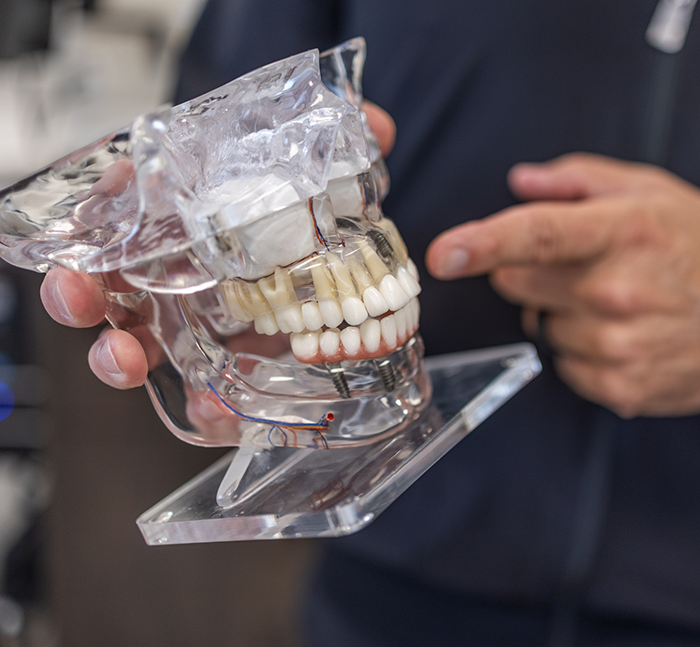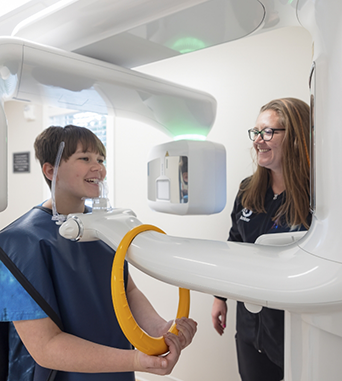Elective Jaw Surgery (Orthognathic Surgery) Lancaster
Improving Your Confidence & Oral Function

In some cases, orthodontics (braces) alone are unable to achieve a normal facial aesthetic or bite desired by the patient. These jaw deformities can be due to growth disturbances, congenital deformities, and trauma, and they can lead to problems with biting/chewing food and speech. In addition, jaws that are too small can reduce the ability to breathe properly, leading to obstructive sleep apnea. Sleep apnea can ultimately lead to many additional life-threatening medical conditions such as high blood pressure and uncontrolled diabetes. Our team at Conestoga Oral Surgery can help you address these concerns with elective jaw surgery in Lancaster. Give us a call to learn more!
Why Choose Conestoga Oral Surgery for Jaw Surgery?
- One of the Very Few Practices Continuing to Offer This Life-changing Surgery
- Great Collaboration and Surgical Planning with Local Referring Orthodontists
- Partnered with Lancaster General Hospital To Ensure Excellent Surgical Outcomes and Increased Patient Safety
What Is Orthognathic (Jaw) Surgery?

Orthognathic surgery is a life-changing treatment for patients with these particular jaw asymmetries. People who can benefit from orthognathic surgery include those with an improper bite or jaws that are positioned incorrectly (overbite, underbite, open bite). Upper and lower jaw growth that occurs during adolescence is a gradual process and, in some instances, can occur at different rates. The result can be a host of problems that can affect chewing function, speech, long-term oral health, and facial appearance. Orthodontics alone can correct bite problems when only the teeth are involved.
Orthognathic surgery may be required for the jaws when repositioning is necessary. The surgeons at Conestoga Oral Surgery have extensive training in the diagnosing, treatment planning, and surgical techniques of corrective jaw surgery.
If you experience any of the following difficulties, we highly encourage you to receive a thorough evaluation from our professionals:
- Difficulty chewing or biting into food
- Difficulty swallowing
- Chronic jaw pain or temporomandibular joint pain
- Excessive wear of the teeth
- Open bite
- Receding chin
- Protruding jaw
- Inability to make the lips meet without straining
- Chronic mouth breathing and dry mouth
- Obstructive sleep apnea
The Jaw Surgery Process

Typically, patients with these jaw discrepancies are initially evaluated by an orthodontist and then referred to an oral surgeon in the pre-orthodontic phase for a consultation. During this visit, we will discuss an overview of the surgery and provide you with a general timeline. The patient then returns to the orthodontist to begin pre-surgical preparations. Once the majority of orthodontic therapy is completed, the patient returns to our office for a pre-surgical workup.
Using state-of-the-art technology, including digital impressions, cone beam CT imaging, and computer-assisted virtual surgical planning, our surgeons will carefully tailor your procedure to suit your functional and aesthetic needs. The surgery is performed in a hospital setting, and patients are usually discharged to home within the first 24 hours. Patients are free to move their jaws normally (no wiring the jaw shut) after surgery and have a modified soft, non-chew diet for approximately six weeks during the healing phase. Post-surgical orthodontics (finishing orthodontics) are then completed.
To learn more about this life-changing surgery, call us at (717) 394-3033 to schedule a consultation with one of our experienced surgeons at Conestoga Oral Surgery.
